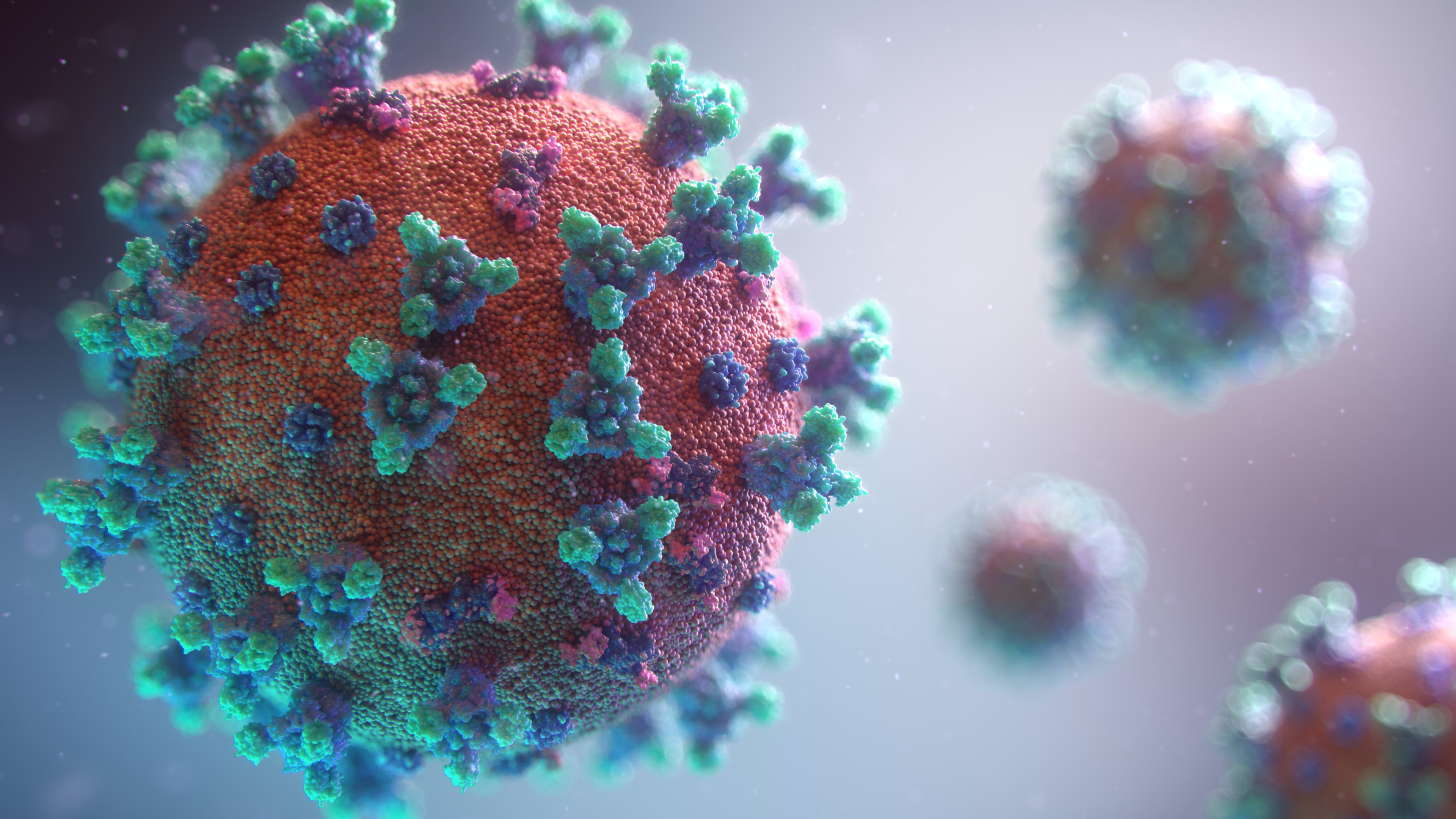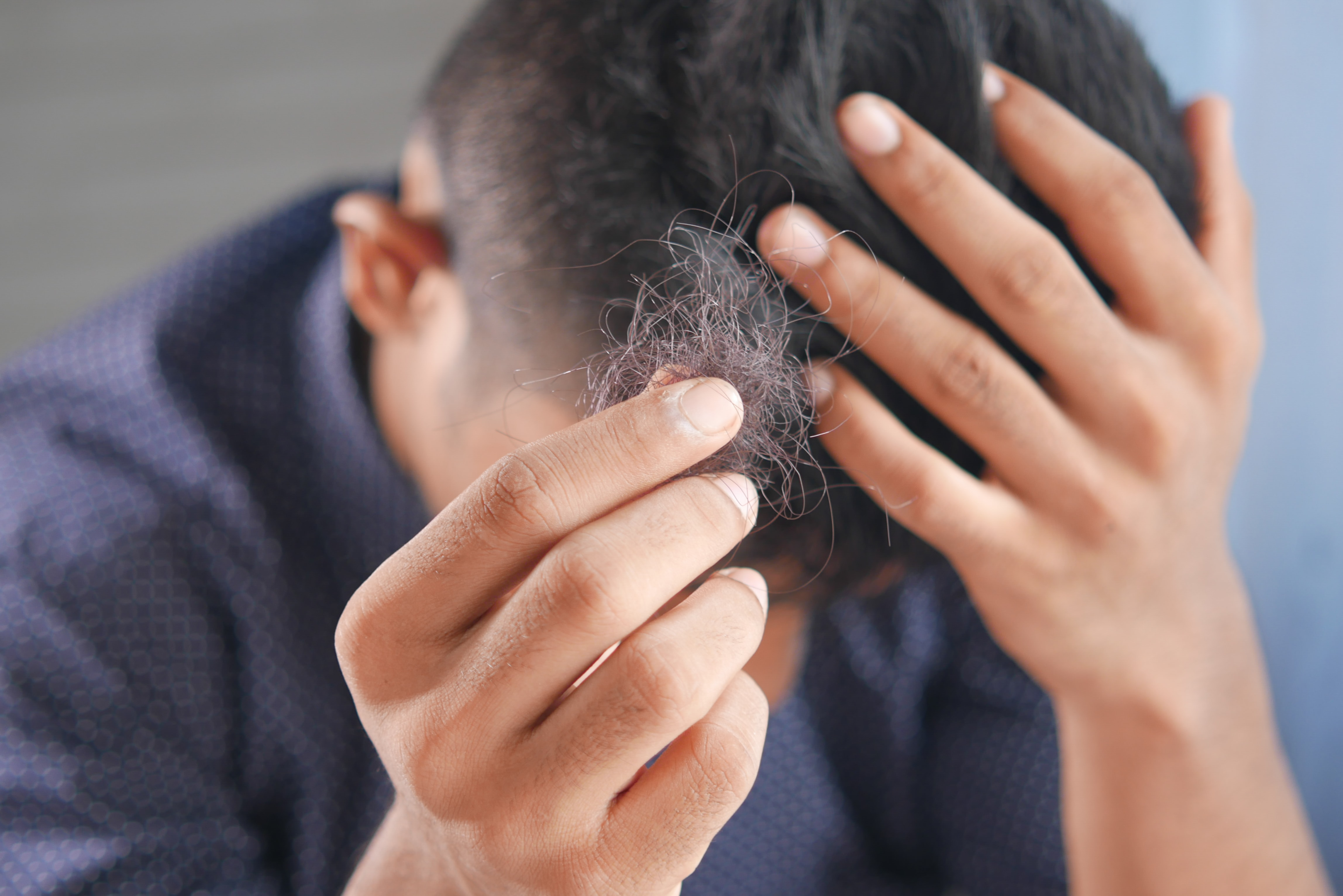Last Updated on: 17th September 2023, 11:03 pm

Following COVID-19 infection, long-term side effects have led to a number of catastrophic symptoms, including loss of taste and smell, cognitive fog, and weariness. Another common symptom that has been mentioned is hair loss. Even though this side effect could be among the most concerning, it usually passes quickly.
What causes hair loss?

When patients with SARS-CoV-2 infections comb their hair every day or wash it in the shower, they may observe clumps of hair falling out. The condition is referred to as telogen effluvium.
On our scalp, approximately 90% of hairs are in the anagen phase of development, while just 10% are in the telogen period of rest. On our scalp, telogen, which lasts between two and six months, begins after anagen, which lasts for around three years. Our hairs shed from their follicles towards the end of telogen and are eventually replaced by fresh anagen hairs. The growth cycle then resumes.
People lose between 100 and 150 hairs every day on average. However, when a person goes through a stressful event, like contracting COVID-19, our systems may prematurely convert a higher than usual percentage of developing anagen hairs into a resting telogen condition.
Hair loss is normal after a fever
A typical COVID-19 symptom is fever. Many people have considerable hair loss a few months after having a high fever or recovering from an illness.
Although a lot of people mistake this for hair loss, it’s actually hair shedding. Telogen effluvium is the medical term for this particular type of hair loss. It takes place when an abnormally large number of hairs simultaneously begin the shedding (telogen) phase of the hair development lifecycle. A fever or other sickness may accelerate the shedding process.
Two to three months after a fever or sickness, the majority of people realize their hair is losing noticeably. When you brush or shower, a lot of hair may fall out. Six to nine months may pass before this hair losing stops.
Telogen effluvium causes noticeable hair Loss
Telogen effluvium causes noticeable hair shedding, but that’s all you should experience. If you have a rash, itchy scalp, or burning, something other than telogen effluvium is likely causing your hair loss, and it’s time to see a dermatologist.
How does covid 19 infection cause hair loss?
According to Dr. Khetarpal, hair loss is a side effect you can experience if you have COVID-19. Contrary to certain hair loss problems, COVID-19 and other illnesses do not cause your scalp to exhibit signs like redness, flaking, itching, or burning.
A “substantial percentage” of COVID-19 infected individuals reported some hair loss, according to research reports. The study found that one to two months after a COVID-19 infection, COVID-19-associated telogen effluvium (excessive hair loss) typically occurred.
According to one research, up to 60% of COVID-19 patients report hair loss.
How long does hair shedding last?
The good news is that most cases of telogen effluvium resolve within three to six months after the loss of the extra hairs that were untimely transferred into telogen. Perng claims that this distinctive recovery takes place following an initiating event, such as COVID-19 infection. Once that time is gone, the hairs will gradually return to normal. The loss of hair follicles is not a result of telogen effluvium. The hair follicles are still there, so even though hair may not grow right away, it will ultimately grow back.
Patients could discover their hair is thinner than it ever was even after the loss has ceased.
Less than 10% of individuals may suffer chronic telogen effluvium, a disease in which severe hair loss can continue for more than six months.
Patients with long-term COVID may have symptoms of chronic telogen effluvium. This is probably because their bodies are still recovering from a great deal of stress and are not entirely back to normal. Because the fraction of telogen hairs seldom rises over 50%, perng reassures patients who endure chronic telogen effluvium that they will not lose all of their hair.
Stressful events may cause excessive hair shedding.
You could still see hair shedding even if you never got a fever or COVID-19. Additional hairs than usual may enter the shedding phase as a result of emotional stress. And during the epidemic, who isn’t feeling more nervous and stressed?
Once more, two to three months after the tension starts, the hair starts to fall out.
It’s crucial to make an effort to relax, even if noticing your hair fall out in clumps may make you feel more stressed. The significant hair loss won’t cease till the stressful situation is over.
Treatment
Treatment for a disorder like hair losing requires persistence and time. The greatest thing that healthcare professionals can do, according to Perng, is to reassure patients that the condition is temporary and of their hair growth. Patients are given the resources they need to assess their health and track their development at home. A patient can be asked to perform a 60-second brushing test and gather the hairs into a pile to see how much hair they are typically losing. The patient may then gradually determine whether their ailment is getting better. For herbal hair treatment.







